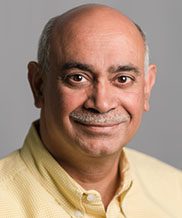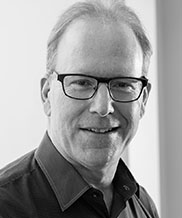Can a Trusted Intermediary Transform Systems Into Interoperable Ecosystems?
Building Trust through Technology-enabled Intermediaries (Virtual Webinar Series)
October 15, 22, 29 and November 5
As people across the globe continue to adjust to implications of the global pandemic, the continued uncertainty elevates the necessity for trusted relationships. Believability and confidence between individuals, directly and indirectly through their devices, exists in a variety of contexts.
Many contexts require a trusted intermediary. This third-party mediates interactions, sitting between stakeholders. In some cases, these stakeholders are users of services or activities provided through digital platforms. In many cases, users contribute the data that creates the benefits they receive.
In all scenarios, trust is essential, and often technological tools are a key component for enabling those relationships, serving as a hub and adding algorithmic filters to deliver affective and cognitive security in mutually beneficial systems.
Join us as we explore how intermediaries, through systems and ecosystems, can serve to build trust networks between people in education and wellness. This series will investigate tools, processes, and strategies that are helping to build trust across a variety of contexts.
Among questions to be explored in this series are:
*How can technology serve as an enabler of trusted relationships?
*What are the human requirements for technology-enabled, trusted relationships?
*What pitfalls, and potential solutions, can be anticipated when digital intermediaries bridge human relationships?
October 22nd, Can a Trusted Intermediary Transform Systems Into Interoperable Ecosystems?
Mutual trust is the basis of cooperation, and every exchange of value, from the barter of goods to e-commerce, rests on a foundation of trust. We used in-person ceremonies from wax seals to signatures to paper credentials to prove something about us and establish our intention and accountability. They worked well in the physical world, but we don’t have a digital equivalent of in-person trust to carry with us and use anywhere with the same ease and breadth as paper-based credentials.
Join us for an exciting conversation between Drummond Reed and Ajay Madhok, two digital identity architects who are now collaborating on digital trust. They will deep dive into digital trust, how it has evolved, and why it is even more critical than traditional trust. Through concrete day-to-day examples, they will highlight trust gaps in the digital world and share a framework designed to enable interoperability across trust boundaries.
Ajay and Drummond will explore a new path to trusted intermediaries for an everything-connected world where our interactions are increasingly moving online. Join us as we explore how intermediaries, through systems and ecosystems, can serve to build trust networks between people in education and wellness.
Additional Virtual Webinar Sessions (Registration Required For Each)
October 29th
11:30-12:30pm PST (ZOOM)
Tina Hernandez-Broussard, Building Trust in Centralizing Wellness Data & Bioinformatics
November 5th
11:30-12:30pm PST (ZOOM)
Keith Coleman, Building a Trusted Agent to Facilitate Human Flourishing
Past “Building Trust through Technology-enabled Intermediaries” Sessions
Rafiq El Alami, Building a Digital Trust Ecosystem for Education
Presenters

Ajay Madhok is a growth architect and the Founding Partner of Reboot, a startup Studio. Having experienced innovation from both sides, helping grown-ups innovate and building startups to disrupt them, Ajay’s expertise is in translating good ideas into successful new products. Ajay’s research focus is on organizational resilience through organic agility and perpetual renewal. The purpose-built startup is one such model that draws on his experience in combining foundational assets of an enterprise with startup talent to create new growth vehicles.

Drummond Reed has spent over two decades in Internet identity, security, privacy, and trust frameworks. He joined Evernym as Chief Trust Officer after Evernym acquired Respect Network, where he was co-founder and CEO. At the Trust over IP Foundation, Drummond is a member of the Steering Committee and co-chair of the Governance Stack Working Group. At the Sovrin Foundation, he serves as chair of the Sovrin Governance Framework Working Group. He is co-editor of the DID (Decentralized Identifiers) specification in the W3C DID (Decentralized Identifier) Working Group.